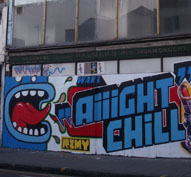Tool theft in Taunton, public indecency in Chard – life is back to normal for Avon and Somerset Police since the toppling of slaver Edward Colston’s statue from downtown Bristol into the harbour, Mark Rowe writes.
As Chief Constable Andy Marsh put it, there was ‘criminal damage’ at the Black Lives Matter demonstration of June 7.
That demo and the many others around the UK in solidarity with George Floyd were in truth strikingly peaceful. Despite rioting and looting in the United States prompted by the Minneapolis death, the UK faced with the same seemingly near-ideal conditions for riots – unemployment, students with time on their hands, the police potentially weakened by self-isolation due to Covid-19, still a risk in places – it’s striking how little disorder there has been.
For at least arguably, last weekend saw less violence overall than a ‘normal’ weekend in Britain of previous years, given that during the suspension of football, hooligans were not travelling by trains nor causing disorder wherever they went in pubs and through town and city centres.
While the Black Lives Matter movement springing to renewed life has showed that single cases can spark large events, it’s more to the point to say that the weeks of lockdown have seen little social trouble, just as the Black Lives Matter protests in the UK led to little damage. Consider that the Mayday 2000 anti-capitalist riot in London also saw damage done to the Parliament Square statue of Churchill – 20 years ago, he was mockingly given a turf of grass as hair. Then McDonalds and other retail property got smashed.
Social disorder is strikingly absent compared with – and it’s far from a full list – anti-Vietnam War riots in central London around 1970, urban riots in Toxteth and other cities (including Bristol) in 1981, the poll-tax riot in central London of 1990, and the widespread looting in English cities in August 2011.
Images of Eston Hills on fire outside Middlesbrough may look apocalyptic on the Cleveland PCC website, but better that (and anti-social riding of quad bikes) than streets on fire.
Rather than plate glass windows broken and hooded youths swarming into the shop fronts to steal high-value consumer goods – the depressing feature of the August 2011 rioting – the greater fear for 2020 must be that the coronavirus has placed Britain and the world in the equivalent situation of France in 1789 and Russia in 1917 – of the beginning of a social process that is beyond the control of government or any group or anyone. That is not to suggest that Britain or the world will descend into political violence as in the French and Russian revolutions.
Rather, that just as the moderately successful French nobleman in 1789 who may have been comfortable with the changes around him that year would not have dreamt of his monarch having his head chopped off in 1793, and the middling government official in Moscow in 1917 would have recoiled at Stalin’s Soviet Union, so – for all we know – we may be only at the beginning of profound and unwelcome changes due to social distancing, if a vaccine or cure for Covid-19 is not forthcoming: such as, drastically less overseas travel, with implications for doing business; and drastically curtailed urban living, with dire implications for being human.
Photo by Mark Rowe; graffiti, Bristol.









